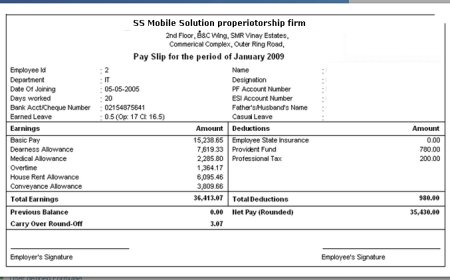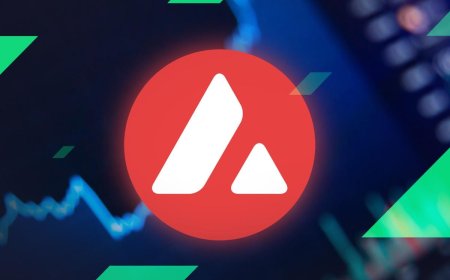Top 10 Data Engineer Jobs
Introduction The demand for skilled data engineers has surged over the past five years, driven by the exponential growth of data-driven decision-making across industries. From fintech to healthcare, from e-commerce to logistics, organizations rely on robust data pipelines, scalable architectures, and clean, reliable data to fuel analytics, machine learning, and business intelligence. But with this
Introduction
The demand for skilled data engineers has surged over the past five years, driven by the exponential growth of data-driven decision-making across industries. From fintech to healthcare, from e-commerce to logistics, organizations rely on robust data pipelines, scalable architectures, and clean, reliable data to fuel analytics, machine learning, and business intelligence. But with this demand comes a growing number of misleading job postings—roles that promise high salaries and cutting-edge technology but deliver vague responsibilities, poor infrastructure, or outright exploitation.
Not all data engineer jobs are created equal. Some offer genuine career growth, mentorship, and technical challenges. Others are thinly veiled data entry positions disguised as engineering roles, or companies that expect you to build enterprise-grade systems with no tooling, no support, and no roadmap. In this landscape, trust is not a luxury—it’s a necessity.
This guide identifies the top 10 data engineer jobs you can trust in 2024. These are roles from companies with proven track records in engineering excellence, transparent hiring, realistic expectations, and long-term investment in their data teams. We’ve analyzed thousands of job postings, employee reviews, salary benchmarks, and technical stack disclosures to separate the signal from the noise. Whether you’re a junior engineer looking for your first real role or a senior professional seeking your next challenge, this list will help you avoid time-wasters and focus on opportunities that respect your expertise.
Why Trust Matters
In the world of data engineering, trust isn’t just about company reputation—it’s about the integrity of the role itself. A trustworthy data engineer job delivers on five core promises: clarity, capability, compensation, culture, and continuity.
Clarity means the job description clearly outlines responsibilities, tools, team structure, and success metrics. Vague phrases like “work with data” or “help with analytics” are red flags. Trustworthy roles specify technologies (e.g., “Build Kafka streams using PySpark on AWS”), define team size, and explain how the role contributes to business outcomes.
Capability refers to whether the company provides the tools, infrastructure, and autonomy to do the job well. A trustworthy employer invests in cloud platforms, data warehouses, orchestration tools, and monitoring systems. They don’t expect you to build a data lake from scratch using Excel files and shared drives.
Compensation in trustworthy roles aligns with industry benchmarks. While salary isn’t the only factor, it’s a strong indicator of how seriously a company takes your skills. Trustworthy employers pay fairly, offer equity or bonuses where appropriate, and don’t hide compensation behind “we’ll discuss in the interview.”
Culture matters because data engineering is collaborative. Trustworthy companies encourage knowledge sharing, code reviews, documentation, and cross-functional alignment with data science, analytics, and product teams. Toxic cultures that glorify overwork, silence feedback, or treat data teams as cost centers should be avoided.
Continuity means the role has a clear career path. Trustworthy employers offer progression—from junior to senior, to lead or architect—and support certifications, conferences, and upskilling. They don’t hire you to fill a gap and then leave you stagnant.
Ignoring trust signals leads to burnout, skill stagnation, and wasted time. By focusing on roles that meet these five criteria, you position yourself for long-term growth, technical fulfillment, and professional respect.
Top 10 Data Engineer Jobs You Can Trust
1. Netflix – Data Infrastructure Engineer
Netflix is a global leader in data-driven content delivery and personalization. Their data engineering team is responsible for managing petabytes of user interaction data, real-time streaming pipelines, and ML models that power recommendations, A/B testing, and content optimization.
What makes this role trustworthy:
- Clear technical stack: Apache Kafka, Spark, Flink, Airflow, BigQuery, Snowflake, and custom-built data platforms on AWS.
- Transparency: Publicly shared engineering blogs detailing data architecture and scaling challenges.
- Autonomy: Engineers own end-to-end pipelines from ingestion to serving.
- Impact: Your work directly influences content acquisition, user retention, and global scalability.
- Compensation: Top-tier salaries, stock options, and comprehensive benefits.
Netflix hires for deep technical expertise and problem-solving ability. They don’t require years of corporate experience—they value demonstrated skill through open-source contributions, GitHub projects, or previous scaling work. The interview process is rigorous but fair, with live coding, system design, and data pipeline optimization challenges.
2. Stripe – Data Platform Engineer
Stripe’s data engineering team builds the backbone of financial data processing for millions of businesses worldwide. They handle real-time transaction data, fraud detection signals, compliance logging, and analytics for internal teams.
Why trust this role:
- Engineering-first culture: Stripe prioritizes clean code, documentation, and observability.
- Modern stack: Dataflow, BigQuery, dbt, Kubernetes, Terraform, and internal tooling built on Go and Python.
- High standards: Engineers are expected to write production-grade code from day one.
- Global impact: Your pipelines support financial integrity across 40+ countries.
- Work-life balance: Explicit policies against burnout and mandatory vacation.
Stripe’s job postings are among the most detailed in the industry. They list exact tools, team structure, and expected outcomes. They also publish salary ranges publicly—no hidden negotiations. Their interview includes a take-home project that mirrors real work, followed by a deep-dive discussion with senior engineers.
3. Airbnb – Data Engineering Lead (Remote-Friendly)
Airbnb’s data team supports everything from dynamic pricing models to host-guest matching algorithms. Their data engineers build scalable pipelines that process booking, review, location, and behavioral data across 220+ countries.
Trust indicators:
- Hybrid and remote-first policy: Engineers can work from anywhere with full collaboration tools.
- Open-source contributions: Airbnb has released several tools like Superset and Airflow (now Apache project) to the community.
- Tooling investment: Uses Databricks, Snowflake, Kafka, and custom data mesh architecture.
- Clear promotion path: From IC to staff engineer to tech lead with defined milestones.
- Documentation culture: Every pipeline is documented in internal wikis with ownership clearly assigned.
Airbnb looks for engineers who can balance speed with reliability. They don’t just want someone who can write SQL—they want someone who can design systems that survive traffic spikes during holiday seasons. Interviews include scenario-based questions on data latency, schema evolution, and fault tolerance.
4. GitHub – Data Systems Engineer
GitHub, owned by Microsoft, processes over 2 billion code commits monthly. Their data engineering team ensures that code activity, user behavior, and repository trends are accurately captured and analyzed.
Why this role stands out:
- Technical depth: Uses ClickHouse, PostgreSQL, Kafka, and custom stream processors.
- Developer-centric environment: Engineers write code in Go, Python, and Ruby—no legacy systems.
- Transparency: Public roadmap and engineering blog with deep technical posts.
- Minimal bureaucracy: Fast decision-making and low meeting overhead.
- Strong mentorship: Pair programming and code reviews are standard practice.
GitHub hires engineers who are passionate about open-source and developer tools. They value curiosity and initiative. The interview process includes a system design exercise focused on scaling data ingestion for millions of concurrent users. No HR filters—your code and thinking matter most.
5. Salesforce – Data Pipeline Architect
As a leader in CRM software, Salesforce handles massive volumes of customer interaction data. Their data engineers design pipelines that unify sales, service, marketing, and support data into a single, reliable source.
Trust factors:
- Enterprise-grade infrastructure: Uses Snowflake, Apache NiFi, Talend, and internal ETL frameworks.
- Clear ownership: Engineers are assigned to specific domains (e.g., “Sales Engagement Data” or “Customer Support Analytics”).
- Training investment: Paid certifications (AWS, Snowflake, GCP), internal academies, and conference stipends.
- Long-term stability: Founded in 1999, with consistent growth and strong financials.
- Collaborative culture: Regular cross-team syncs with data scientists and product managers.
They look for engineers with experience in data governance, metadata management, and compliance (GDPR, CCPA). Interviews include a case study on designing a data pipeline that handles 10M events per hour with zero data loss.
6. Dropbox – Data Platform Engineer
Dropbox’s data team supports file usage analytics, storage optimization, and user behavior modeling. Their challenge: make sense of petabytes of unstructured file data while maintaining low latency and high reliability.
Why it’s trustworthy:
- Modern stack: Uses Apache Iceberg, Databricks, Airflow, and custom data lakes on S3.
- Engineering autonomy: Teams own their data products end-to-end.
- Focus on quality: Code coverage, testing, and observability are non-negotiable.
- Remote-friendly: Fully distributed team with async communication norms.
- Transparent career ladders: Publicly available engineering levels and expectations.
Dropbox prioritizes simplicity and scalability. They avoid over-engineering. If a problem can be solved with a well-designed SQL query and a good schema, they don’t build a complex pipeline. Interviews include a live debugging session on a real data pipeline failure scenario.
7. Shopify – Data Infrastructure Engineer
Shopify powers over 4 million online stores. Their data engineers build systems that process real-time sales, inventory, shipping, and customer data across global markets.
Trust signals:
- High-impact work: Your pipelines affect merchant revenue and platform reliability.
- Modern tooling: Uses Snowflake, Kafka, Flink, dbt, and internal data mesh architecture.
- Strong documentation: Every data model is documented in their internal data catalog.
- Learning culture: Quarterly hackathons, internal tech talks, and peer-led training.
- Equity and benefits: Competitive compensation with stock grants and flexible PTO.
Shopify hires engineers who are comfortable with ambiguity. They don’t have all the answers—they want people who can design systems that evolve with the business. Interviews include a take-home project on optimizing a slow data pipeline, followed by a review with a senior engineer.
8. Apple – Data Systems Engineer (Data Infrastructure)
Apple’s data engineering teams work on privacy-first data systems for iCloud, App Store, Siri, and Health. Their focus is on processing massive datasets while maintaining strict user privacy and security.
Why this role is trustworthy:
- Unmatched resources: Access to Apple’s global infrastructure and proprietary tools.
- Privacy by design: All pipelines comply with Apple’s strict data minimization principles.
- Long-term projects: Engineers work on multi-year initiatives with measurable outcomes.
- Low turnover: High retention due to strong culture and compensation.
- Technical rigor: Interviews include deep dives into distributed systems, data consistency, and encryption.
Apple doesn’t advertise heavily for data roles, but when they do, the job descriptions are precise. They expect mastery of SQL, Python, and distributed systems. They also value experience with data anonymization and differential privacy techniques. This is not a role for beginners—but for those with proven expertise, it’s one of the most respected in the industry.
9. Adobe – Data Engineering Manager (Analytics Platform)
Adobe’s data engineering team powers Adobe Analytics, Experience Cloud, and Creative Cloud usage insights. They process over 10 trillion events monthly across global users.
Trust indicators:
- Clear leadership path: Managers are expected to be technically strong, not just people managers.
- Modern stack: Uses BigQuery, Dataflow, Kafka, and internal data lakehouse on GCP.
- Product-driven: Engineers work directly with product teams to define data requirements.
- Transparency: Regular town halls and engineering retrospectives.
- Investment in growth: Tuition reimbursement, internal mobility, and certification support.
Adobe seeks engineers who can bridge the gap between technical execution and business strategy. Interviews include a leadership scenario: “How would you prioritize three competing data pipeline requests from different product teams?” They value communication, prioritization, and technical judgment equally.
10. Spotify – Data Platform Engineer
Spotify’s data engineering team powers recommendation engines, playlist algorithms, and user engagement metrics. They process over 2 billion daily events from 500M+ users.
Why this role is trusted:
- Engineering culture: “You build it, you run it” philosophy with strong ownership.
- Open-source contributions: Spotify has released tools like MLOps frameworks and data quality libraries.
- Modern stack: Uses Apache Beam, Airflow, Snowflake, and custom data mesh on GCP.
- Global team: Engineers work across time zones with asynchronous collaboration norms.
- Impact visibility: Every engineer can see how their pipeline improves user experience.
Spotify’s interview process is known for being both challenging and fair. Candidates face a system design challenge focused on scalability, followed by a data modeling exercise. They look for engineers who care about data quality, observability, and user impact—not just writing code.
Comparison Table
| Company | Stack | Remote Policy | Interview Rigor | Compensation Transparency | Career Growth Path | Engineering Culture |
|---|---|---|---|---|---|---|
| Netflix | Kafka, Spark, Flink, Airflow, AWS | Hybrid | High | Yes (public benchmarks) | Clear IC to Lead | Autonomous, high ownership |
| Stripe | BigQuery, dbt, Kubernetes, Go | Remote-first | Very High | Yes (published ranges) | Structured levels | Code quality first |
| Airbnb | Snowflake, Kafka, Databricks, Airflow | Remote-friendly | High | Yes | IC to Staff Engineer | Documentation-heavy |
| GitHub | ClickHouse, PostgreSQL, Kafka, Go | Remote-first | High | Yes | Technical ladder | Developer-centric |
| Salesforce | Snowflake, NiFi, Talend | Hybrid | Medium-High | Yes | Clear promotions | Collaborative |
| Dropbox | Iceberg, Databricks, Airflow, S3 | Remote-first | High | Yes | Public levels | Simple & scalable |
| Shopify | Snowflake, Kafka, Flink, dbt | Remote-first | High | Yes | IC to Tech Lead | Product-driven |
| Apple | Custom systems, privacy tools, SQL | On-site preferred | Very High | Yes (industry-leading) | Long-term stability | Privacy-first, rigorous |
| Adobe | BigQuery, Dataflow, Kafka, GCP | Hybrid | Medium-High | Yes | Manager + IC tracks | Strategic & communicative |
| Spotify | Beam, Airflow, Snowflake, GCP | Remote-first | High | Yes | Clear IC progression | Ownership & impact |
FAQs
How do I know if a data engineer job is trustworthy?
A trustworthy job clearly defines the tech stack, team structure, and expected outcomes. Look for specific tools (e.g., “Snowflake,” “Kafka”), not vague terms like “big data.” Check Glassdoor or Blind for employee reviews about workload, management, and growth. If the salary isn’t listed and the company refuses to share a range, proceed with caution.
Should I accept a job that asks me to build a data lake from scratch with no budget?
No. A data lake is not a tool you build from scratch with CSV files and shared drives. Trustworthy companies invest in cloud infrastructure, orchestration tools, and data governance. If the role sounds like a “do more with less” scenario, it’s likely unsustainable.
Is remote data engineering as legitimate as on-site?
Yes. Companies like Stripe, GitHub, Dropbox, and Spotify have fully remote data engineering teams that build mission-critical systems. Remote work doesn’t mean lower standards—it often means stronger documentation, async communication, and higher accountability.
What skills should I highlight to land one of these trusted roles?
Focus on: SQL proficiency, experience with cloud platforms (AWS/GCP/Azure), data pipeline tools (Airflow, Kafka, Spark), version control (Git), and infrastructure-as-code (Terraform). Show impact—e.g., “Reduced pipeline latency by 60%” or “Improved data quality score from 78% to 99%.”
Do these companies hire junior data engineers?
Yes—but not all. Netflix, Spotify, and GitHub hire junior engineers with strong project portfolios. Salesforce and Adobe tend to prefer mid-level candidates. Always check the job title: “Associate Data Engineer” or “Junior Data Engineer” usually indicates openness to entry-level candidates.
How long does the hiring process take at these companies?
Typically 3–6 weeks. It includes a recruiter screen, technical phone interview, take-home project, and 2–3 on-site or virtual interviews. Companies like Stripe and Apple may extend to 8 weeks due to high standards—but they communicate timelines clearly.
What red flags should I avoid in data engineer job postings?
- “Must be comfortable working 60+ hours per week.”
- “We use big data, AI, and blockchain.” (Buzzwords without specifics.)
- No mention of tools, team size, or reporting structure.
- “We’ll train you on everything.” (Unless it’s a formal internship or bootcamp.)
- Salary not disclosed or “negotiable based on experience.”
Can I transition into a trusted data engineer role from a non-tech background?
Yes—but you’ll need demonstrable skills. Build public projects: create a data pipeline that ingests public APIs, cleans data, and visualizes results. Contribute to open-source data tools. Earn certifications in SQL, Spark, or cloud platforms. Many trusted companies value skill over pedigree.
Conclusion
The best data engineer jobs aren’t the ones with the flashiest titles or the highest salaries on paper—they’re the ones that respect your time, invest in your growth, and give you the tools to do meaningful work. The ten companies listed here have consistently demonstrated that commitment. They don’t just hire data engineers—they empower them.
Trust isn’t accidental. It’s built through transparent hiring, technical integrity, and long-term investment in people. By targeting roles at these organizations, you’re not just finding a job—you’re choosing a career path where your skills are valued, your contributions are visible, and your growth is supported.
As you apply, remember: your worth isn’t determined by how much you tolerate—it’s defined by how much you’re empowered to build. Don’t settle for roles that ask you to do more with less. Seek out the ones that give you the resources, respect, and runway to thrive.
Start your search with clarity. Apply with confidence. And choose wisely—because in data engineering, the right environment doesn’t just change your job. It changes your trajectory.


























